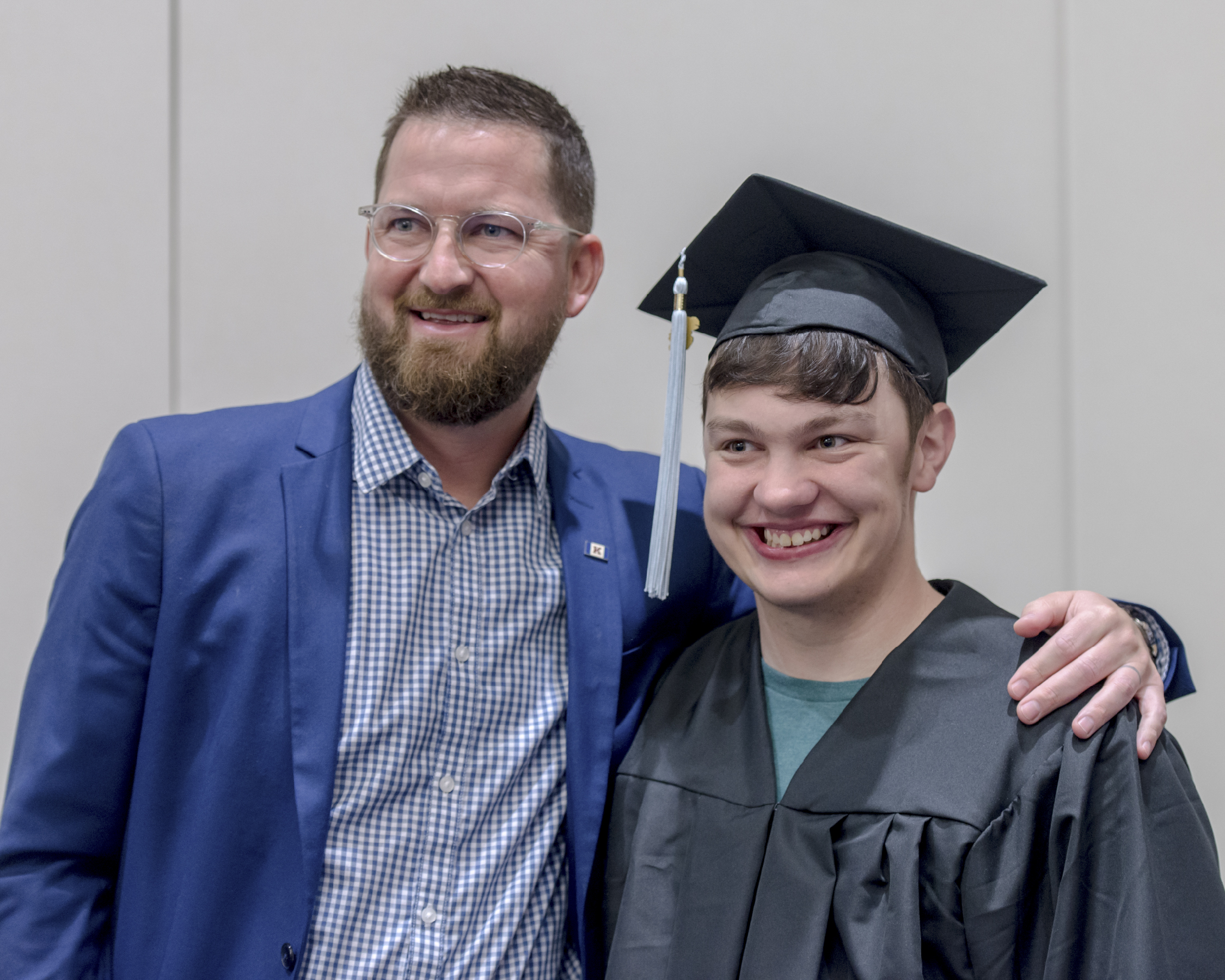KU promotes the intellectual diversity in higher education during Think College Awareness Week

During Think College Awareness Week, virtual information sessions, recorded webinars and more, available at thinkcollege.net for anyone interested in learning more about inclusive postsecondary education for people with intellectual disability.
We're highlighting Transition to Postsecondary Education (TPE), an inclusive postsecondary education program for KU students with intellectual disabilities, which is part of the KU School of Education and Human Sciences, and supported by the KU Center on Developmental Disabilities (KUCDD), the KU Beach Center on Disability, and the College of Liberal Arts and Sciences.
Over the course of two years, TPE students earn a minimum of 24 credit hours in regular KU courses, learning alongside peers without disabilities. Paid and unpaid internships are available. Graduates earn the KU Transition to Postsecondary Education Certificate through the School of Education and Human Sciences, with coursework recorded on students’ official KU transcripts.
Barbara A. Bichelmeyer, Provost and Executive Vice Chancellor at KU, said the university benefits greatly from the program.
“Including students with intellectual disabilities at KU, it makes the entire university a better university,” she said in a video released by Think College to raise awareness of programs such as TPE.
While more than 300 universities and colleges offer programs for students with intellectual disabilities, the inclusion of TPE students and other undergraduates is an important aspect of the program at KU, as part of the school’s mission to foster diversity, equity and inclusion practices and policies throughout the university. TPE is the only inclusive postsecondary education program for people with intellectual disabilities in the state.
TPE students engage and participate in all student life activities, joining campus clubs, athletic games, choir performances and university events, as well as living in KU Housing and hanging out with friends.
According to TPE director Dana Lattin, students with intellectual disabilities at KU grow and develop just as any other undergraduate — meeting new people, learning to live in a community with others, managing their coursework, navigating the Lawrence campus and speaking to faculty about classes or academic concerns — all important lessons in addition to their academic education in helping their transition to adulthood.
KU TPE saw its first graduating class in 2018, and since then, a total of 25 students have completed the program, with 80% of them engaged in paid employment within 90 days of graduating. Graduates have a four times higher rate of paid employment than the national average for individuals with intellectual disabilities.
To learn more about attending KU as a TPE student, including admission steps, tuition and more, visit tpe.ku.edu.